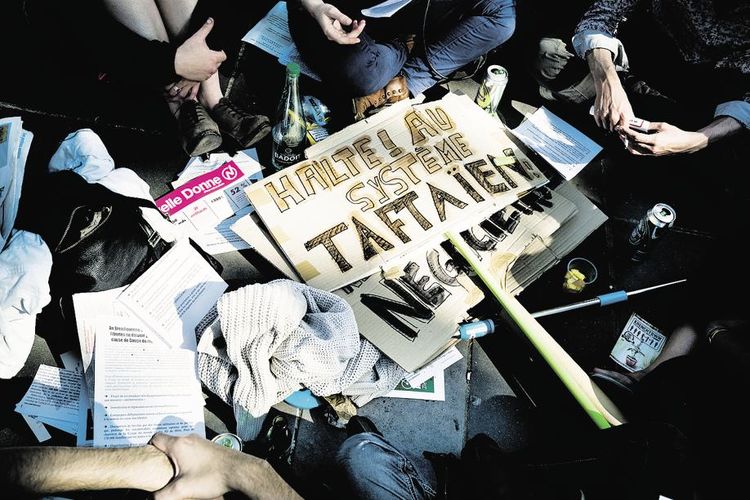CETA draft: Important positions taken by the French National Assembly also relevant for TTIP/TAFTA and the EPAs
All the versions of this article: [English] [français]

Mediapart | 17 December 2014
CETA draft: Important positions taken by the French National Assembly also relevant for TTIP/TAFTA and the EPAs
Freely translated by Anoosha Boralessa in April 2015. Not reviewed or revised by bilaterals.org or any other organization or person
Author: Raoul Marc Jennar
On the 23 November 2014 the French National Assembly adopted a resolution whose importance cannot escape the attention of citizens, be they men or women. Citizens in France and many other European countries are opposed to the EU agreement with Canada (CETA), the agreement with the US (TTIP according to its English acronym, but better known in French by the acronyms GMT or TAFTA) and other similar documents (negotiations on services, TISA, or the Economic Partnership Agreements with the African, Caribbean and Pacific countries or EPAs). Because the position taken by the National Assembly on the agreement negotiated with Canada is valid for all other agreements negotiated in secret, without a mandate from their people or their representatives.
In the document accessible on the web the French representatives made five key points:
1/ The first demand is that the draft agreement between the EU and Canada be considered a “mixed agreement”. That is, an agreement that needs to be ratified by the European Parliament as well as each of the 28 national parliaments. Let us recall that this matter requires unanimity. As CETA is completely identical to the European mandate for the agreement with the US, this request also applies to the latter if successfully negotiated. It applies also to the ratification of the EPAs.
2/ The second is that this draft agreement cannot call into question article 191 of the TFEU (Treaty of the Functioning of the European Union, or Treaty of Rome) concerning the scope and invocation of the precautionary principle. It is now immensely feared that this will follow from the application of many provisions of this draft CETA and of the European negotiating mandate for the EU-US agreement.
3/ The third point is that the provisions relating to genetically modified organisms in CETA violate relevant EU regulation on this matter. The same goes for the European mandate for the negotiation of the EU-US agreement.
4/ The fourth is a demand that the mandate for a regulatory cooperation process, which is also provided in the mandate for negotiations with the USA (art 43), be defined precisely.
5/ Fifthly, it says no to any mechanism for arbitrating disputes and demands that the CETA chapters on arbitration be revised. This also means that the text must be renegotiated with Canada and that articles 23, 32 and 45 of the European mandate for the EU–US negotiations be rejected.
Certainly, it would have been preferable if the National Assembly rejected outright an agreement negotiated in utmost secrecy that leads to the demise of popular sovereignty and to the transfer of government from people to transnational firms. But the demands formulated in this Resolution make this rejection possible.
If one compares this resolution with the one voted for last May regarding negotiations with the USA, one takes stock of the progress made, that is, of the impact of mobilizations which arose from a growing awareness among the people of the grave dangers of this type of agreement known as free trade agreement.
This must encourage us to persevere. Moreover it is necessary that the French people be they men or women, are informed, made aware and convinced of the need and utility for resistance. It is necessary that far more pressure is exerted on their local, national and European representatives. The voluntary European citizen initiative that received more than a million signatures must now set itself the target of reaching two million. It is in France that the greatest effort must be applied to reach this goal. If you have not done so, sign it! (https://stop-ttip.org/fr/signer/?noredirect=fr_FR )
The local municipalities that demand that negotiations stop, or that France withdraw its support for them, must swell in number.
Resistance produces effects. We must increase resistance.
No Pasaran!
Raoul M. Jennnar





